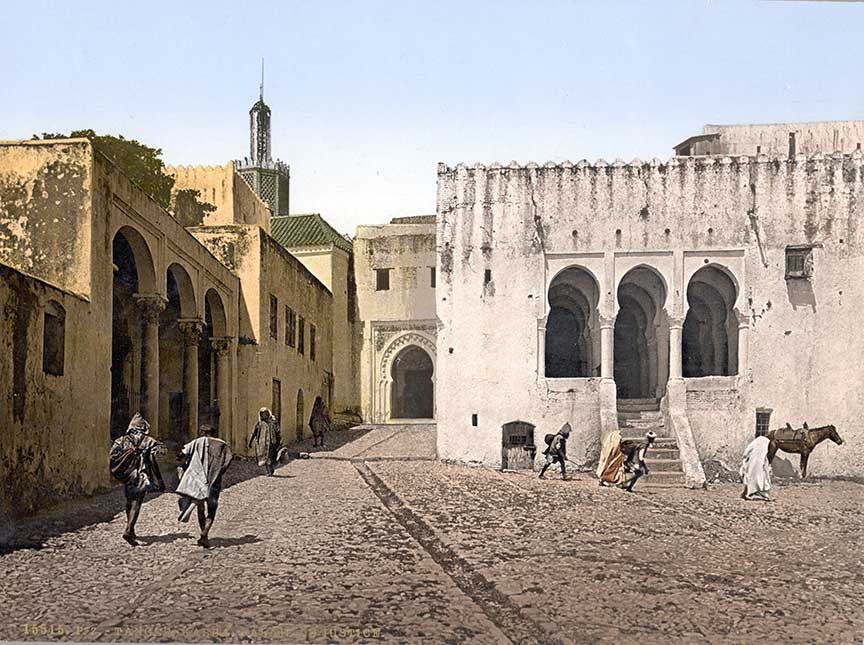1905 Tangier Crisis

Palace of Jusitce Tangiers
The Moroccan Crisis in the early 20th century saw Morocco's independence threatened by European powers, sparked by the kidnapping of an American retiree and his English stepson. France sought control, but Germany's Kaiser Wilhelm II publicly backed Morocco's independence. Fears of war surged until the Algeciras Conference in 1906 upheld Morocco's sovereignty, averting conflict but revealing Europe's fragile alliances..
Morocco, was, at the turn of the 20th century, the last country that was still independent in the northern half of Africa. Its strategic location, vast resources, and the intricate balance of power between Europe's empires made it a hotbed for political intrigue and international tension.
In the midst of this, an incident on May 18th exacerbated the tension significantly. A wealthy American retiree and his English stepson were kidnapped by forces staunchly opposed to the Sultan of Morocco. Their abduction, which one might have seen as a mere local disturbance, unwittingly acted as a catalyst for the simmering ambitions of European powers. Suddenly, the complex web of alliances and rivalries between these powers was laid bare, with Morocco at its center.
France, with its colonial interests in North and West Africa, was the first to stake its claim on Morocco. Viewing the kidnapping and the subsequent instability as a pretext to increase their influence in the region, the French believed that bringing Morocco under their protective wing was the best course of action. They reasoned that their presence would ensure stability and offer protection to foreigners and investments.
However, in a turn of events that sent shockwaves throughout the diplomatic world, Germany, led by the formidable Kaiser Wilhelm II, took umbrage at the French claim. Germany’s colonial empire paled in comparison to that of France or Britain, but the Kaiser was determined to assert Germany's right to be a part of any decision involving Morocco.
On March 31, in a bold and audacious move, Kaiser Wilhelm II disembarked in Tangiers. Thousands had gathered, the air was thick with tension, and all awaited the Kaiser's words. What followed was a hastily prepared speech delivered at the dock. The essence of his message was clear: Germany would continue to recognize the Sultan of Morocco as the independent ruler of the nation. This was not just a snub to France; it was a direct challenge.
Europe suddenly found itself on the precipice of war. Diplomatic cables crisscrossed the continent. Newspapers splashed headlines about the looming conflict. The intricate web of treaties and alliances meant that any conflict between France and Germany could potentially drag the entire continent into war.
Realizing the potential catastrophe, an international conference was proposed to address and hopefully resolve the crisis. Thus, the Algeciras Conference was convened in January 1906. Representatives from Europe's major powers, along with the United States and Russia, gathered in the Spanish town of Algeciras. The air was thick with anticipation, as the delegates negotiated the fate of Morocco and, by extension, the balance of power in Europe.
The conference resulted in the Act of Algeciras, which, while acknowledging the special position of France and Spain in maintaining order in Morocco, upheld its sovereignty and the Sultan's position. Most notably, the conference managed to prevent an escalation into a full-blown war, which, given the tensions, was no small feat.
 >
>